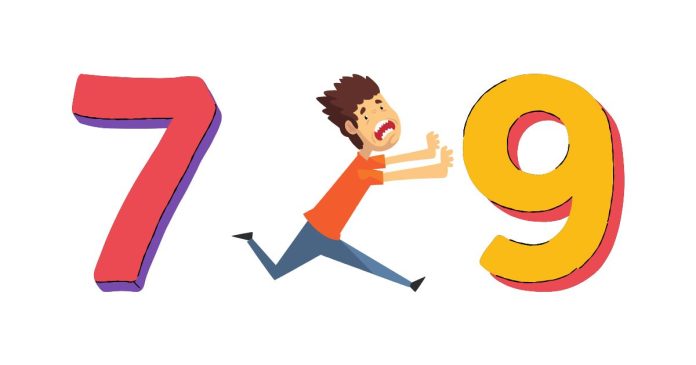If you’ve ever heard the joke, “Why was seven afraid of nine?” you’re probably already familiar with the punchline: “Because 7 8 (ate) 9.” It’s a classic piece of humor that plays on a mix of wordplay and numbers. But have you ever wondered why this particular combination of numbers became such a beloved joke? Let’s break it down and explore why it continues to make us smile!
The Origins of the Joke
The joke “Why was seven afraid of nine?” first became popular as part of a larger trend of number-related humor, especially among children. It plays on the double meaning of the word “ate” (sounding like “eight”) and the idea that numbers can be “scary” or have personalities. But while it’s simple, it’s also clever in its wordplay, making it easy for kids and adults alike to appreciate.
At its core, the joke follows a structure that has been around for centuries: a setup with a seemingly serious question followed by an absurd, unexpected answer. This format has always been a staple of humor, and when applied to numbers, it takes on a playful twist that appeals to our love of both language and math.
The Joke in Popular Culture
Though it’s a lighthearted gag, the joke has found its way into a variety of media and conversations. You might hear it in cartoons, children’s shows, or even in casual conversation when people are just looking to share a bit of fun. The idea of numbers having feelings, or being “scared” of each other, taps into a childlike sense of wonder, where everything—even numbers—can be given human-like qualities.
The Humor Behind the Joke
What’s particularly amusing about this joke is the way it personifies numbers in a way that makes them relatable. We can imagine numbers having personalities, which is why it works so well. The “fear” of number seven being “scared” of number nine plays into the idea of being cautious or afraid of something unexpected. And let’s be honest, who wouldn’t be a little startled if you suddenly realized the number 7 was in danger of getting “eaten”?
Additionally, the humor comes from the surprise of the punchline. Instead of the expected, logical answer, we’re presented with a simple and absurd explanation that catches us off guard and makes us laugh.
Why Does It Still Resonate?
What makes this joke stand the test of time is its simplicity and the ease with which it can be shared across generations. Whether you’re telling it to a toddler or telling it as part of a group of friends, it’s an instant hit. The visual of a number “eating” another is amusing, and the association with childhood learning—numbers and counting—adds to its charm.
The joke “Why was seven afraid of nine?” has earned its place as a timeless, clever piece of humor. Its easy wordplay, the absurdity of the premise, and the relatability of numbers as characters make it a fun and memorable joke for all ages. So next time you’re in need of a quick laugh, remember the unlikely fear of number seven—and maybe, just maybe, you’ll hear a few chuckles in response!


